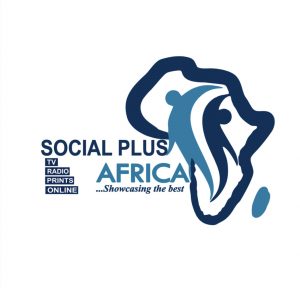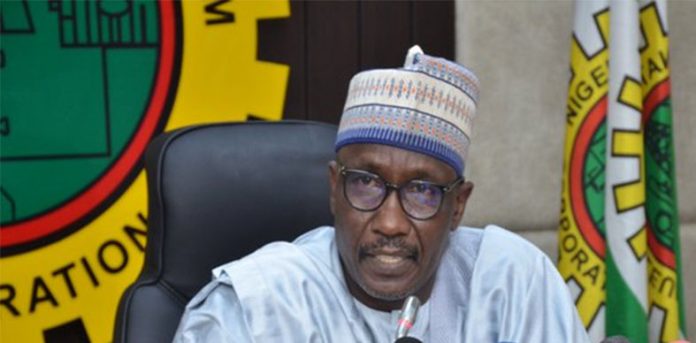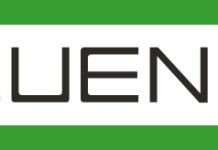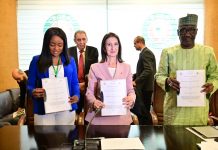The Federal Government, on Monday, denied reintroducing the subsidy on Premium Motor Spirit, popularly called petrol, amid the closure of many filling stations nationwide due to various challenges in the downstream oil sector.
It also said the pockets of queues observed by motorists in petrol stations across the country stemmed from hiccups in product distribution from the South to the North, not a lack of supply.
This came as the Nigerian National Petroleum Company Limited also declared on Monday that it would have gone bankrupt in June this year had it been the President, Bola Tinubu, did not halt subsidy on PMS in May.
NNPCL also announced that Nigeria would become a net exporter of refined petroleum products by next year, going by efforts to revamp its refineries.
Nigeria, through the NNPCL, currently imports PMS and other refined petroleum products consumed across the country, which has been ongoing for decades.
The Group Chief Executive Officer, NNPCL, Mele Kyari, told State House Correspondents after an audience with the President at the Aso Rock Villa that fuel subsidy had not been returned.
“No subsidy whatsoever. We are recovering our full cost from the products that we import. We sell to the market, and we understand why the marketers are unable to import. We hope that they do it very quickly and these are some of the interventions the government is doing. There is no subsidy,” he stated.
Kyari’s assertion came barely 48 hours after the Petroleum and Natural Gas Senior Staff Association of Nigeria confirmed the return of fuel subsidy.
Also, oil marketers had repeatedly stated that fuel subsidy had returned, as they explained that the landing cost of petrol as of last week was N720/litre. The commodity is currently sold at between N580/litre and N617/litre, depending on the area of purchase.
PENGASSAN’s National President, Festus Osifo, had said the government still subsidised petrol due to the cost of crude oil in the international market and the exchange rate.
“They [government] are paying subsidy today. In reality, today, there is a subsidy because, as of when the earlier price was determined, the price of crude in the international market was around $80 for a barrel.
“But today, it has moved to about $93/94 per barrel for Brent crude. So, because it has moved, the price [of petroleum] also needed to move. The only reason the price will not move is when you can manage your exchange rate effectively and you can pump in supply and bring down the exchange rate.
“So, if the exchange rate comes down today, we will not be paying a subsidy. But with the exchange rate value and the price of crude oil in the international market, we have introduced subsidy,” Osifo explained.
In his inaugural address after taking the oath of office on May 29, 2023, Tinubu announced that the Federal Government was closing the curtains over the subsidy era.
“Subsidy can no longer justify its ever-increasing costs in the wake of drying resources.
“We shall instead re-channel the funds into better investment in public infrastructure, education, health care, and jobs that will materially improve the lives of millions. Petrol subsidy is gone!” Tinubu had declared.
The President’s announcement sparked the increase in fuel price from N197 to between N480 and N570. The pump price was subsequently reviewed upward to N617/litre.
Addressing journalists about the gradual return of fuel queues, on Monday, the NNPCL boss said, “We have seen in a very few states pockets of very low queues not unconnected with the road situation.
“We’re seeing the number of blockades on our road crossing products from the Southern depots into the Northern part of the country and it takes them much longer than they do now.
“They have to reroute the trucks around many locations for them to be able to reach, creating delays and some supply gaps. But that has been filled and we do not see such problems again.”
While arguing that supply remained robust, Kyari explained that the full deregulation of the downstream sector had created market competition.
He said this phenomenon had led to minuscule price variations across gas stations, with consumers naturally patronising marketers with a lesser pump price.
“You must have noticed some fuel stations will reduce prices by two Naira and three Naira, so customers will naturally run to the places where you have that price reduction.
“That creates panic because those who don’t know why they are doing it will think something wrong is happening.
“Supply is robust. We have over 1.4 billion litres of product, both marine and land. Also, there are no issues around delivering those products onto the land. So, there is no fear, nothing to bother about,” Kyari argued.
The NNPC chief revealed that the firm was liaising with other oil marketers to address the forex challenges.
He clarified, “We’re engaging them to resolve alongside other agencies of government and critical issues around access to foreign exchange.
“Government is doing so much to ensure supply of FX into the market. We know this FX market will stabilise the current I&E window at around 770.
“And we know that those inputs are already happening. The inputs of the government today will crystallise and also, they will come to an equilibrium position in the FX market and this is a dream of this country.”
Kyari, speaking at a different function in Abuja on Monday, noted that the NNPCL would have gone bankrupt in June this year if Tinubu had not removed the subsidy on petrol.
He also revealed that about 25 licences that were meant for the construction of refineries in Nigeria had remained idle due to subsidies on refined petroleum products, particularly PMS.
He further stated that Nigeria would become a net exporter of refined petroleum products by 2024 based on concerted, ongoing efforts to get the country’s refineries running.
This came as oil marketers raised concern about the continuous closure of filling stations nationwide due to the crisis around foreign exchange and their inability to import petrol into Nigeria.
Speaking at the Energy and Labour Summit organised by the Petroleum and Natural Gas Senior Staff Association of Nigeria in Abuja, Kyari stated that NNPCL was spending over N400bn on PMS subsidy monthly.
He said the immediate halt of the scheme by Tinubu on the assumption of office on May 29, 2023, was a life-saver for the oil firm.






